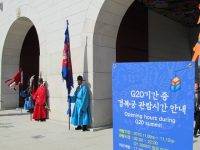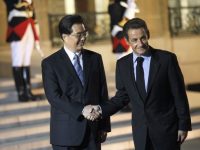Memo #63
(Related article in French here)
By Yves Tiberghien – yves.tiberghien [at] ubc.ca
 Is the G20 still useful? What can we expect of it this year? Analysts in Canada and the US are often quick to discount the G20 process as meaningless summitry among too many countries focused on widely divergent domestic agendas and embroiled in pre-electoral politics. Ian Bremmer and Nouriel Roubini both call this a G-zero situation.
Is the G20 still useful? What can we expect of it this year? Analysts in Canada and the US are often quick to discount the G20 process as meaningless summitry among too many countries focused on widely divergent domestic agendas and embroiled in pre-electoral politics. Ian Bremmer and Nouriel Roubini both call this a G-zero situation.
This view is wrong for two reasons. First, the world desperately needs significant global institutional innovation in the wake of the 2008 financial crisis and during a time of unprecedented systemic risk. Only the G20 is able to deliver the necessary political leadership to initiate the upgrading of global governance.
Second, novel ideas and energy are forthcoming in 2011, mostly from an emerging EU-China dialogue. This was clear in the relative success of last month’s G20 meeting in Paris between finance ministers and central bankers. Paris succeeded where Seoul had failed last November in creating a set of acceptable economic indicators to track global imbalances. True, the deal was a compromise, but this initiative defused the tense US-China standoff and clears the air for the G20.
But the G20 will be a more difficult game in 2011. The French / European presidency this year is pushing hard on key public goods, such as the international monetary system, the volatility of global capital flows and commodity markets, moral hazards in global finance, and a new development agenda.
Despite President Obama’s promise to play a positive role and despite public opinion pressures in both the US and the UK, Wall Street is resurgent and unwilling to countenance further global financial regulations. Japan is mired in a deep political crisis and is unlikely to play an important role. Despite French energy, Europe is less united at the G20 table than in 2009.
China is clearly emerging as the pivotal player in the G20, given its equidistant position between pro-regulation Europeans and skeptical Americans and Canadians. Where China goes, the weight of the G20 will go on G20 issues. At a time when regional Asian coordination between China, Japan, and Korea is not functioning on G20 issues, the most important development is China’s acceptance of key European arguments about global public goods.
About the Author:
Yves Tiberghien – Director, Institute of Asian Research, The University of British Columbia. Guest Editor for Theme: “Asia at the 2011 Cannes G20.”
Links:
- G-Zero, Foreign Policy, January 2011
- Our G-Zero World, Project Syndicate, February 2011
- Prospects for France’s presidency of the G20, East Asia Forum, March 2011
- G2 in G20: China, the United States and the World after the Global Financial Crisis, Global Policy, Volume 1, Issue 1, January 2010

